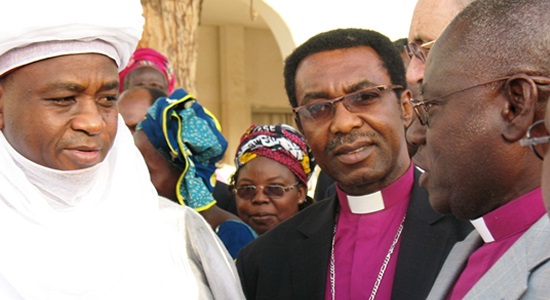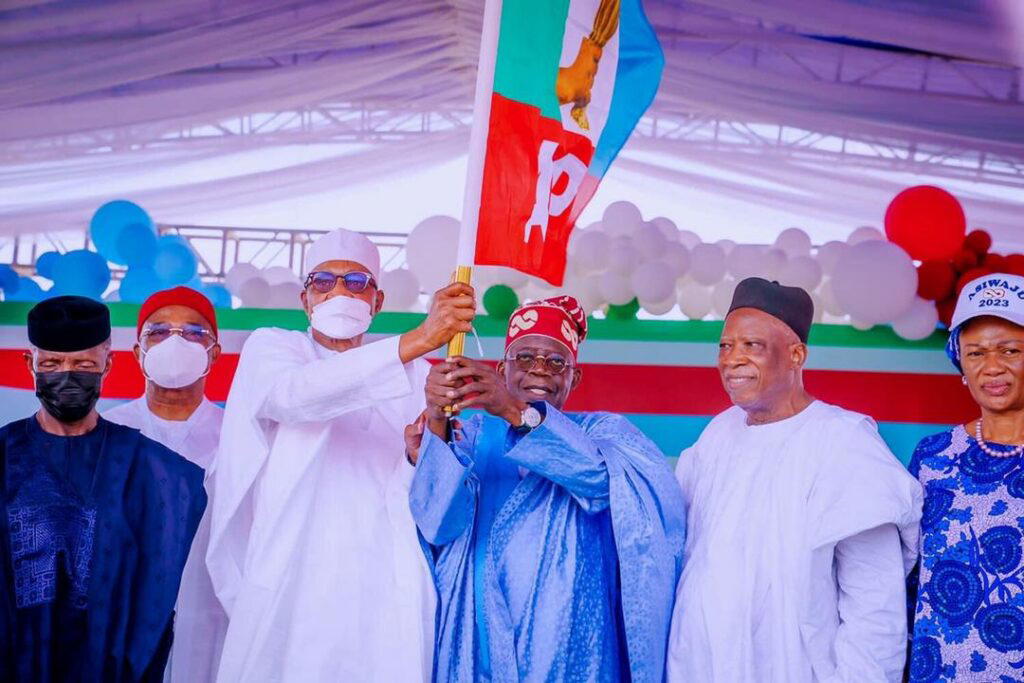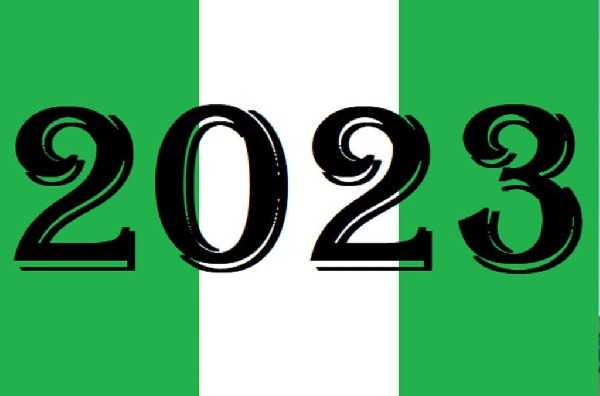The point I am trying to make is that the best candidates should be allowed to do the job irrespective of their religious affiliations, but after conceding the north-south in making the choice for the sake of peace and national unity. Despite secular nature of the Nigerian state by virtue of Section 10 of the 1999 Constitution of Federal Republic of Nigeria (as amended), which reads “The Government of the Federation or of the State shall not adopt any religion as State Religion”.

As the political cloud thickens ahead of next year’s general elections, the selection of the running mate or vice-presidential candidate for the respective presidential hopeful remains topical. This is because the position of presidency is the highest in the land and everyone is concerned and interested in who emerges as this would go a long way in determining the future of the people and the nation. Not only that, the success or otherwise of the performance of the would-be president would depend largely on the intellect, loyalty and the ability of his deputy and hence, not a joking matter.

In the last few weeks, what has dominated the public space borders on religion as the key factor to be weighed in choosing presidential running mates. It is becoming increasingly interesting by the day, who becomes running mates to leading aspirants like Asiwaju Bola Tinubu of the All Progressives Congress (APC), Alhaji Atiku Abubakar of Peoples Democratic Party (PDP), Dr. Rabiu Kwankwaso of the New Nigeria People’s Party (NNPP), and Mr. Peter Obi of the Labour Party (LP), amongst other contestants. Many parameters can be used to select preferred candidates, but geopolitical paradigm seems to be more relevant than religion, godfatherism or other considerations that have dragged us backwards as a nation.
Therefore, if geopolitical parameter is allowed to reign in, the better for the polity. It is expected that a working combination in the dimension of southern-northern configuration in a highly pluralistic society such as ours, is desirable. In other words, for candidates such as Tinubu (South-west) and Obi (South-east), their running mates should come from the north-east, north-west, or north-central geopolitical zones for this balancing to be entrenched. Toeing this line of reasoning, the least and parochial basis to be looked at picking the right candidate is religion; hence it does not really matter to have Muslim-Christian, Muslim-Muslim or Christian-Christian ticket. What matters most is for the nation to get dividends of democracy and good governance through quality leadership?
Why the fuss over the choice of Tinubu to get a Moslem running mate from the north, Atiku or Kwankwaso selecting another Moslem from the south, or better still, Obi picking his preferred Christian running mate from the north? The truth that must be told is that the state of affairs in Nigeria today has gone bad to the extent that nothing seems to be working again. Security is almost zero, poverty level is at its highest, unemployment level has reached an alarming point, corruption is killing by the day, capacity utilisation of industries is at the lowest ebb, while the purchasing power of the people has almost crashed beyond salvation. It is for these reasons that the leadership that the country needs at this trying time is one that is tolerant, competent, sincere, sensitive, frank, proactive, understands the problems and knows what to do. Hence, the call for Muslim-Christian ticket at all cost, at the expense of quality leadership, should be taken with a pinch of salt.
What our country requires at this critical moment of its life is purposeful leadership that can never emerge as long as we continue to promote ethno-religious patronage and with little or no respect for meritocracy. By the way, who says Muslim-Muslim ticket cannot work for Tinubu or Atiku candidacy? Before we continue this discourse, let us revisit the fears of the Christian Association of Nigeria (CAN), Pentecostal Fellowship of Nigeria (PFN) and other interest groups alluding that Muslim-Muslim ticket is forbidden. Looking at the Tinubu example without prejudice, can we or can’t we in him, a detrabilised Nigerian with a large heart and high level of religious tolerance? It is instructive to note that despite being a staunch Moslem, he has allowed his wife to practice her faith without any hindrance. Infact, Senator Oluremi Tinubu is an active pastor in her church. How many CAN members can marry a non-Christian in the first place or allow their spouses to practice another faith different form theirs without any consequence?
On the other hand, how many Moslem men can live peacefully with their wives that practice another religions without forcing them to covert to Islam? It is also relevant to add that while Tinubu was governor of Lagos State, he was never myopic nor tribalistic in this appointments. This benevolence made it possible for non-indigenes to become commissioners and heads of government establishments in the state. Let me say without equivocation that I am neither a member of any political party nor embarking on a campaign for any candidate; I’m just saying it as it is. What have we to boast of that, Mr. President or his vice must be a Christian by all means? How do we explain a situation that despite the occupation of Christians in top government positions under the present dispensation, unwarranted killings, attacks on churches, and perceived marginalisation of Christians continue unabated in the land?
The point I am trying to make is that the best candidates should be allowed to do the job irrespective of their religious affiliations, but after conceding the north-south in making the choice for the sake of peace and national unity. Despite secular nature of the Nigerian state by virtue of Section 10 of the 1999 Constitution of Federal Republic of Nigeria (as amended), which reads “The Government of the Federation or of the State shall not adopt any religion as State Religion”. The huge influence of religion on politics in the country can be said to have threatened our corporate existence. What we see every time is that hiding under the toga of religion, Nigerian politicians and elites have failed at entrenching solid democracy and bridge the gap between politics and religious values. The deficit is increasingly manifested in virtually all facets of our national life, where we largely practice more of pseudo-religion.
The nation has had many bitter experience when if comes to religiosity. We can still recall what happened during the introduction of Sharia Court of Appeal that almost brought the Constituent Assembly to an abrupt end in 1978 and the walk-out that was staged by some Muslim and non-Muslim supporters then, the sectarian crises of the 1980s, enrolment of Nigeria as a members of the Organisation of Islamic Cooperation (OIC), and the series of ethno-religious violence that have dotted the political landscape from the 1990s till date. What do we have today? Politicians have simply refused to desist from using religious sentiment to manipulate the electoral process at the detriment of national development and genuine democratisation.
No doubt, religion has remained a major factor in Nigerian politics in the post-independence era such that the interplay between religion and politics has continued to elicit intellectual discourse. However, the English philosopher and a leading scholar in modern political philosophy, Thomas Hobbes, in his 1651 seminal publication, Leviathan, had warned that religion is a potent tool of divisiveness and a stimulant to political instability. In view of the above, all the presidential aspirants should look beyond their political parties to get the best materials to bring about the desired change for many eligible candidates are not necessarily party men or women. Tinubu and other aspirants, who may not necessarily be the best candidates for the contest, should take a different route and search for seasoned and tested professionals in the diaspora, academia, and the private sector to make up for their deficiencies and turn around the fortunes of the nation.
Adewale Kupoluyi



















